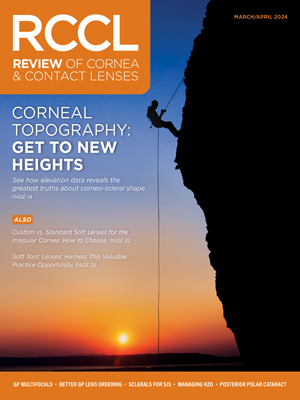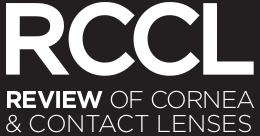 A recent plane ride started just as every other one does: wait in a line that was much longer than it needed to be, hope to find a place to stuff my carry-on, take out my iPad and headphones and pray the person sitting next to me doesn’t show up.
A recent plane ride started just as every other one does: wait in a line that was much longer than it needed to be, hope to find a place to stuff my carry-on, take out my iPad and headphones and pray the person sitting next to me doesn’t show up.
Unfortunately, they always do.
Once they arrive, the usual verbal drill goes something like this: “You flying back home or going to Dallas for work?” The next volley of pleasantries inevitably centers on occupation.
The question, “What do you do?” is a staple of more than half of my flights. When I respond with my stock answer, “I’m an optometrist,” I invariably get these two follow up questions: (1) What do you think of laser surgery?, and (2) Exactly which eye guy are you? Are you the doctor guy or the other one?
In-flight Entertainment
In an effort to circumvent this boring song and dance, on my last flight I decided to shake things up a bit.
This time, my answer to the question, “What do you do?” was, “I have the best gig in the world. Ten to 20 times per day, I get a chance to change someone’s life for the better, and let them experience the world in ways they never thought they could.”
The response was, “Wow! But what do you do?”
“I just told you what I do,” I replied.
“I meant, what’s your occupation?”
“Oh, I fit contact lenses. I’m an optometrist,” I said.
“Really? I wear contact lenses and none of that happened to me.”
“That’s because you didn’t get your lenses from me.”
Yes, this dialogue is nearly verbatim, and I was purposely being overly dramatic just to see what would happen. As you can probably imagine, the discussion quickly turned to new types of contact lenses, as well as all of the recent changes in our industry.
That was certainly a nice change of pace from the typically boring in-flight conversation, but this interaction actually taught me a very powerful lesson.
When talking to patients, or in our marketing to prospective patients, we usually talk about what we do instead of what we can do for our patients. There’s a significant difference between saying, “We fit contact lenses” and, “We help you see better and experience life more fully when we fit you with contact lenses.”
It’s the age-old marketing adage of explaining the WIIFM (What’s in it for me?), but in this case, it’s about specifically delineating and clearly stating the benefits of what we do. It takes practice to break the habit of simply stating, “I’m an optometrist,” when you feel the reflexive urge to respond with only your title.
Have some fun with your staff (like we did with a client’s) and come up with occupational WIIFMs for other jobs before your staff begins to work on their own. Here are some of my favorite WIIFMs from a few different professions:
“I ensure that the commerce, economy and traffic of the state of New Jersey continues to function at optimum efficiency.” – Toll collector on the Garden State Parkway
“We make the world a prettier place to live by helping sustain and cultivate nature.” – Landscaper
“I make sure you have an energetic start to each day.” – Dunkin’ Donuts store manager
“We bring you non-stop entertainment and keep you plugged in to the news of the world.” – Cable guy
“We make you happy.” – Veterinarian (note that it does not say something along the lines of, “We make sick dogs better.”)
Spread the Word
Once you settle on your own “what you do” statement—and please, feel free to use mine—practice it with some office role-playing. Sure, it will feel acutely foreign at first, but once you get comfortable with the script and essence of your WIIFM, you should start using it with both current and prospective patients.
When it becomes a more natural part of your approach, you’ll find that you actually start looking forward to hearing the question, “What do you do?”
Unless, of course, you’re on an airplane.


